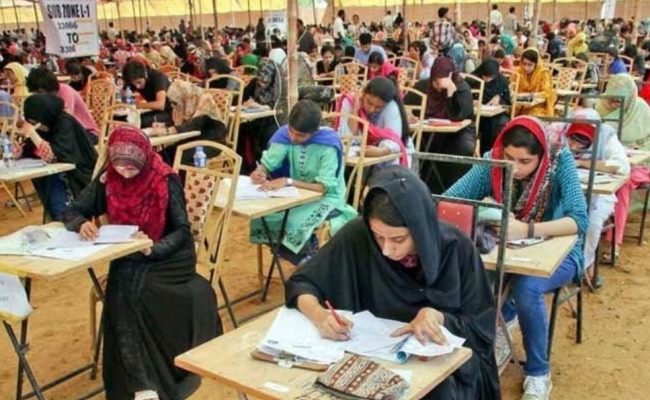The case involves the arrest of key officials from the Dow University of Health Sciences (DUHS) and others for allegedly leaking the MDCAT (Medical and Dental Colleges Admission Test) question paper. These individuals, including Fuad Sheikh (Controller of Examinations), Manthar Ali (Deputy Controller of Examinations), and four others (Muhammad Farooque Khan, Tariq Aziz Samo, Shan Asfandyar, and Shiraz Bilal), were detained by the Federal Investigation Agency (FIA) for their involvement in selling the exam paper via social media platforms in exchange for monetary compensation.
The accused sought bail, which was initially opposed by the prosecutor, who argued that the case was still at an early stage, and the charge sheet had not been submitted. Despite this, the Judicial Magistrate (Malir), Piyar Ali Khoso, granted bail of Rs100,000 to each suspect after considering arguments from the defence counsel. The defence claimed that there was insufficient evidence to justify the charges, highlighting that the relevant sections of the law under PECA (Prevention of Electronic Crimes Act) were bailable offenses.
However, the magistrate had initially returned the bail applications, citing jurisdictional issues, particularly concerning the Prevention of Corruption Act, as some of the accused were public servants. The magistrate noted that misconduct by public servants was a scheduled offense under the Act. A sessions judge later overruled this decision, directing the investigation officer to present the FIR and related documents to the magistrate, who would then decide the bail matters.
This inquiry began on October 18, 2024, after a complaint was filed regarding the leak of the MDCAT paper, which had occurred on September 22, 2024. The FIA discovered that Dow University of Health Sciences DUHS officials and others had breached confidentiality and used social media to sell the leaked information during the exam preparation stage. As a result, several individuals have been booked under various sections of PECA and the Pakistan Penal Code (PPC).







